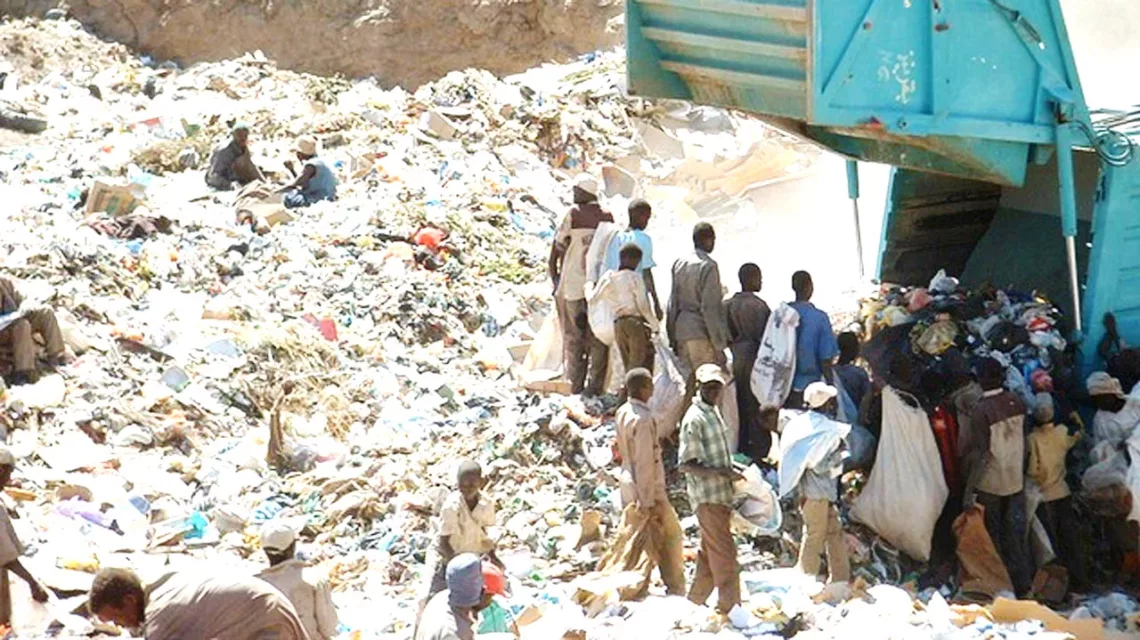Nigeria’s human waste industry has been estimated by a plethora of health economists to have the potential of more than one billion naira daily. This is because eradicating open defecation, which has become a threatening menace, is worth that much.
According to the United Nations World Health Organization (WHO) and United Nations Children’s Fund (UNICEF), the extent of open defecation in Nigeria varies from as low as 1.2 per cent of households in Abia to as high as 65.8 per cent in Kogi. Other states that show higher than the national average (37 per cent) with regard to open defecation practices are Ekiti (60.8 per cent), Plateau (56.2 per cent), Oyo (54 per cent), Cross River (53.6 per cent), Benue (52.9 per cent), Taraba (52.5 per cent), Nasarawa (50.8 per cent), Kwara (50.5 per cent, Enugu (48.6 per cent), Jigawa (48.1 per cent), Ondo (47.6 per cent), Niger (47.5 per cent), Ebonyi (45.5 per cent), Osun (39.2 per cent) and Kebi (37.6 per cent).
The implication of the above statistic is that it puts Nigeria in the unenviable position as the country with the highest open defecation in the world, currently 50 million Nigerians in the practice.
There are currently 774 local government areas in Nigeria. Assuming the country adopts a public/private partnership approach to eradicating open defecation by building at least 50 public toilets in each local government area that would amount to almost 39,000 of such toilet facilities. Further assuming each of the 39,000 toilets makes at least N20,000 daily, that would amount to N774,000,000 (seven hundred and seventy four million naira) every day. When multiplied by the 365 days in a year, that would amount to N282,510,000,000 (two hundred and eighty two billion five hundred and ten million naira) annually.
The above estimation is a fairly conservative figure. NATIONAL ECONOMY interviewed nine operators of public toilet facilities in market areas in Lagos who revealed that they make more than N50,000 daily from the night soil and night rain business.
Building model public/private partnership toilets would be a laudable move as it has tremendous health and economic implications. The health implication is that open defecation has health risks linked to deaths from diarrhoea, cholera, and typhoid. It is also a risk factor for violence against women and girls who, for example, may need to leave home in the dark to find somewhere to defecate.
The economic benefits of sanitation to an economy are not always well understood. This is mainly because of paucity and limitation of data on the subject. However, in recent years there is increasing realization of the cost and benefits of sanitation on making a country open-defecation-free. Some studies indicate that for every US dollar spent on sanitation the return varies from US $9 to over US$40, according to the World Bank.
In a desk study on the economic impact of poor sanitation in Nigeria, undertaken by the World Bank and published in 2012, it was estimated that Nigeria loses N455 billion, then US$ 3.6 billion annually due to poor sanitation. This amounts to US$ 20 per person in Nigeria per year or 1.3 per cent of the national GDP. The loss to the country from some of the major components was estimated as follows: – US$243 million loss each year in access time, that is, the time lost in finding a suitable place for defecating. This cost falls disproportionately on women as caregivers who may spend additional time accompanying children or sick or elderly relatives. According to the Water Aid Study, 68 per cent of women opined that the cost of using public toilets is a problem for them.
Nigeria needs an estimated NGN 1.11 trillion ($2.7 billion) to end open defecation by 2025. Of that, the government is expected to provide around 25 per cent, or NGN280 billion — justified on the grounds that the country loses NGN455 billion annually to poor sanitation. The other 75 per cent of the cost will be incurred by households. The majority of the costs, supposed to be incurred by households, will be spent on constructing toilets for those who don’t have them, while funds from the government will be spent on public projects including ensuring access to toilet facilities at public places.
With so much money expected to be pumped into the challenge, the federal government is encouraging the emergence of a toilet business ecosystem, which includes innovative toilet designers, and financiers to provide loans and other financial tools to households, community organisations, and more.
But advocates say a wide gap exists between ambition and action. To meet the 2025 target, Nigeria needs to build two million toilets every year from 2019 to 2025. That is quite an ambitious goal, although UNICEF is currently delivering about 100,000 toilets annually.
But the goal is achievable. Over the period of five years, India was able to virtually eradicate open defecation. Even with a population of more than 1.2 billion people, the country embarked on an ambitious five-year mission to eliminate open defecation nationwide, building millions of toilets and aiming to change the habits of hundreds of millions of its citizens. That has been accomplished with will and government determination.
In Nigeria, the best way to go about achieving such a laudable goal is through public/private partnerships. It has worked reasonably well in Lagos and can be replicated in the rest of the country. Once people can make money out of a public good that fetches them money, they are motivated to go all the way to invest in such ventures.





